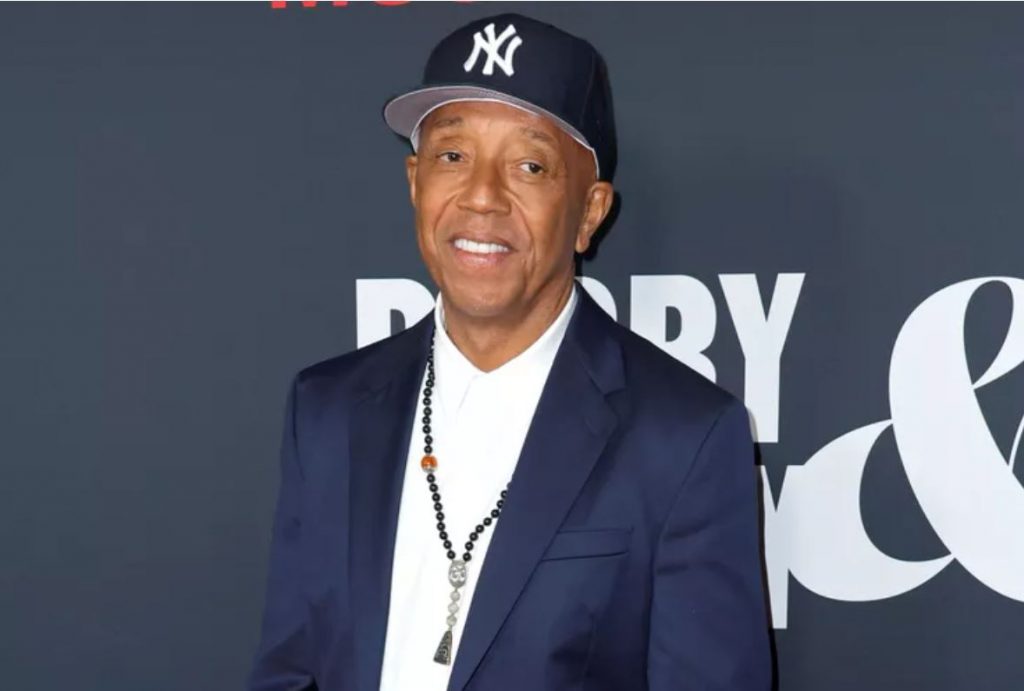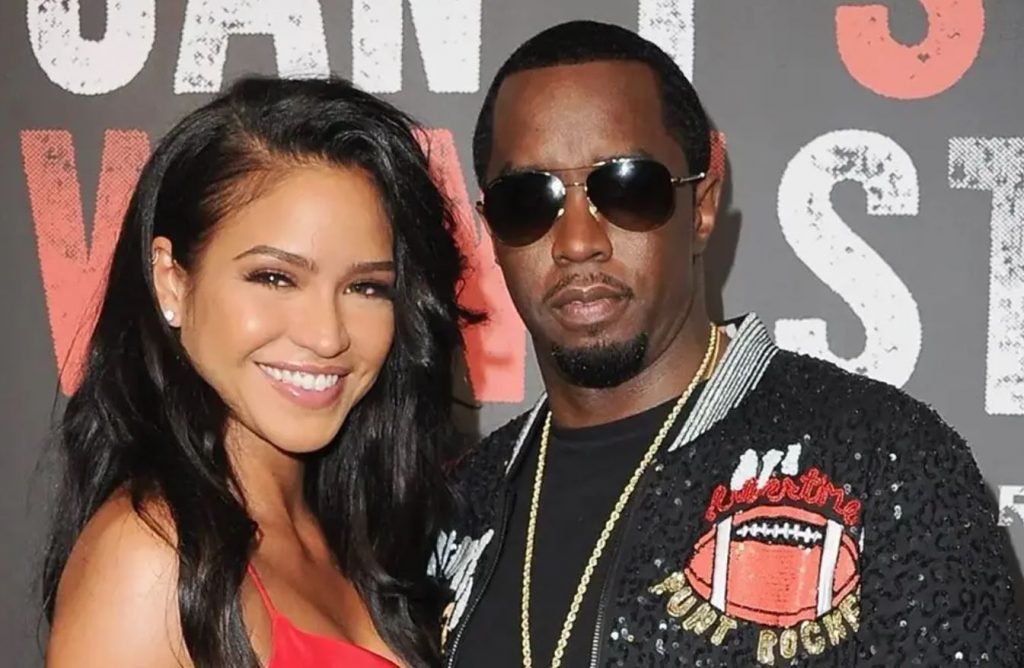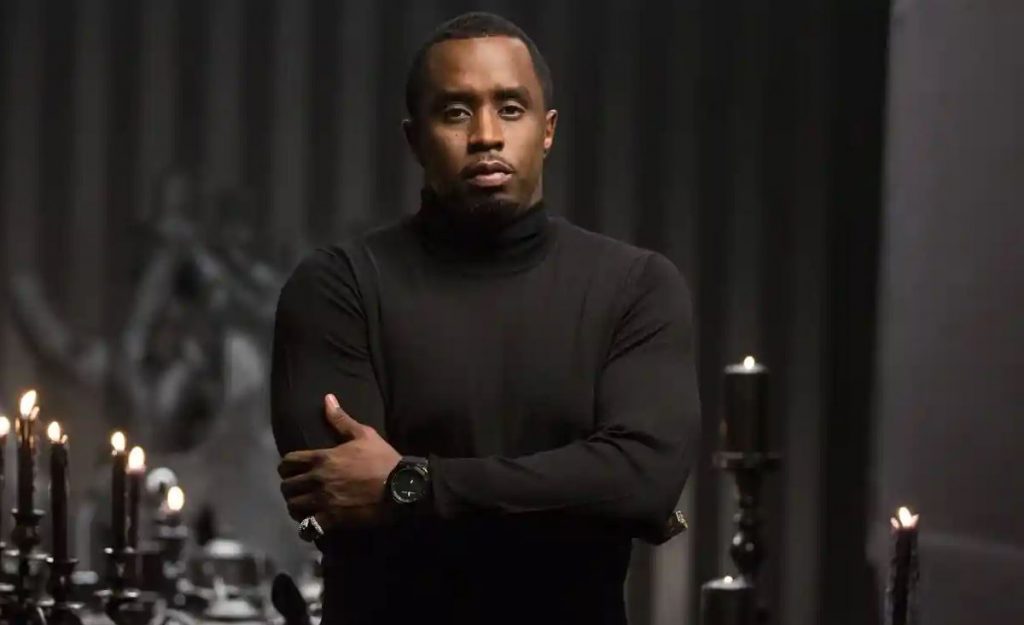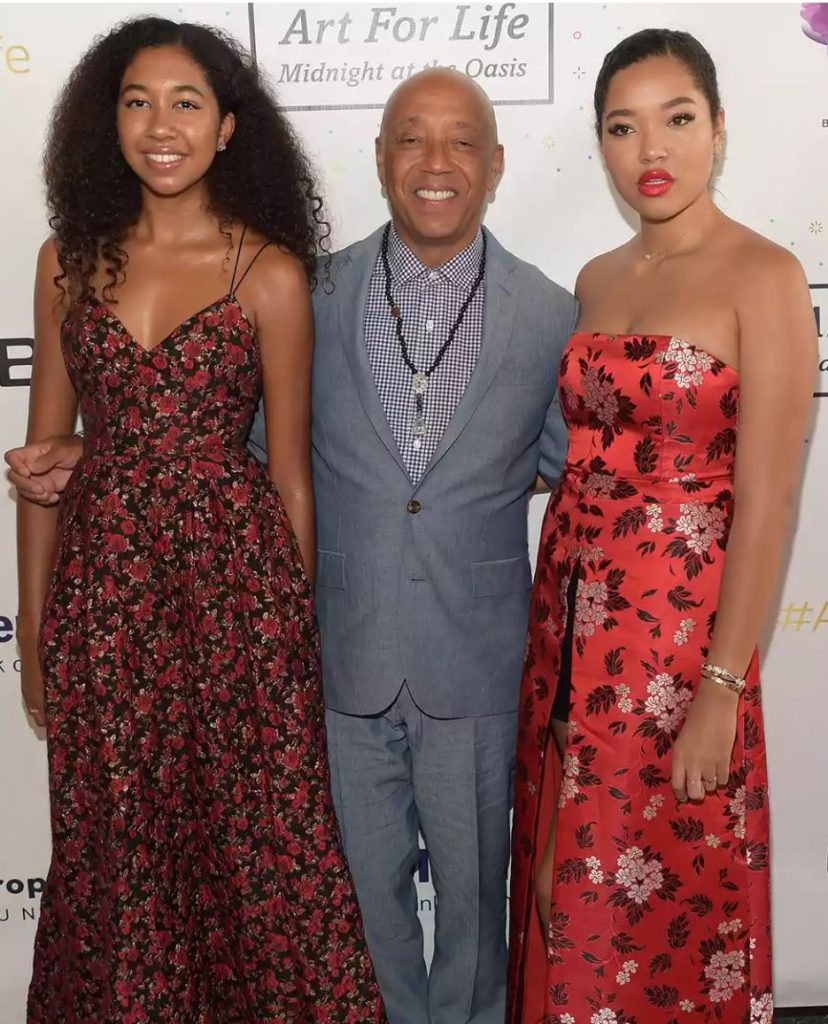
Russell Simmons Blue
Are The Struggles of Diddy and Russell Simmons Sullying The 50th Anniversary of Hip-Hop
By Christopher Weems
Hip hop, a genre that began as a voice for the voiceless in the streets of New York City, has grown into a global cultural and economic powerhouse. As we celebrate the 50th anniversary of this influential movement, we recognize that its expansion and impact extend far beyond the artists and their music. The business executives behind the scenes have played an equally pivotal role in propelling hip hop into the stratosphere of mainstream culture and business.
The journey of hip hop from the underground to the forefront of global culture is a tale of creativity, resilience, and savvy business acumen. Executives like Sean “Diddy” Combs and Russell Simmons were not just facilitators but visionaries who saw hip hop’s potential to transcend music and influence every aspect of culture. Beyond music, hip-hop executives have planted the culture into fashion, sports, movies and television, and more. There are hip-hop dance classes, hip-hop-infused Broadway and classical music productions, and hip-hop themed menus and restaurants. Business “moguls’” entrepreneurial ventures in music production, fashion, media, and lifestyle brands were instrumental in elevating the genre from a niche musical form to a lifestyle embraced worldwide.

These moguls understood that hip hop is more than just beats and rhymes; it is a way of life that could influence and be influenced by various aspects of society. From the clothing we wear to the beverages we consume, from the way we speak to the causes we champion, hip hop has left an indelible mark, thanks in part to the strategic business decisions made by these executives.
Two prime examples of this are Sean “Diddy” Combs and Russell Simmons.
Sean “Diddy” Combs, known as much for his business acumen as his musical talent, emerged as a defining figure in the 1990s. Founder of Bad Boy Records, Combs was instrumental in shaping the careers of artists such as The Notorious B.I.G., Mary J. Blige, and Ma$e. His influence, however, extends far beyond music production. Diddy’s flair for blending music with entrepreneurship pioneered a new path in hip hop, leading to the creation of a multifaceted empire encompassing fashion (Sean John), spirits (Ciroc vodka), and media. His journey from a record executive to a global brand has been a source of inspiration to many both inside and outside of the hip hop community, showing that hip hop is not
just an art form but a platform for groundbreaking business ventures.
Russell Simmons, co-founder of Def Jam Recordings, is often credited as one of the individuals who brought hip hop to the mainstream. His keen eye for talent led to the success of seminal artists such as Run-DMC, LL Cool J, the Beastie Boys, and Public Enemy. Simmons’ impact, however, transcends the record label. He was a pioneer in realizing the potential of hip hop in different industries – from fashion with Phat Farm to media with the creation of Def Comedy Jam, which introduced a new generation to the comedic voices of the African American community. His role in advocating for social issues, using hip-hop as the “soundtrack” for social change, made him not just a music mogul but a cultural innovator.
Along with others, these men’s ability to leverage the genre’s popularity into successful businesses and brands has not only enriched the cultural tapestry but has also generated significant economic impact.
They opened doors for new talent, created jobs, and forged partnerships that crossed traditional industry boundaries. However, as with any influential figures, their legacies are complex, intertwined with both groundbreaking achievements and controversial episodes.
In recent weeks, Sean “Diddy” Combs has been embroiled in multiple allegations of sexual assault and misconduct. These allegations have surfaced from different individuals and span different periods, painting a troubling picture of the hip-hop mogul’s off-stage behavior. According to reports, Combs has faced four separate lawsuits alleging sexual abuse. One of these lawsuits was filed by his ex-girlfriend and singer, Cassie Ventura, accusing Combs of physical abuse, sex trafficking, and rape over a decade.

This lawsuit was settled out of court on a confidential basis. Two more women subsequently filed additional lawsuits against Combs, also accusing him of physical and sexual violence.
The details of these allegations are disturbing. Ventura’s claims include acts of intimidation and violence, sometimes involving guns. In another lawsuit, a plaintiff named Joi Dickerson-Neal accused Combs of drugging and sexually assaulting her while she was a student way back in 1991.
Simmons has been accused by multiple women of sexual assault and misconduct, with allegations also dating back several decades. These accusations include claims of rape and other forms of sexual abuse. In response to these allegations, Simmons has consistently denied any wrongdoing. He has stated that he has never been violent or abusive in his relationships and that all his encounters have been consensual.
To try and fight the claims, Simmons has taken several lie detector tests, which he claims support his innocence. He has spoken about the allegations in various interviews, insisting that his relationships have always been consensual and highlighting the changing cultural and social norms around sexual conduct over the years. However, his denials and explanations have not been able to end speculation and controversy surrounding these allegations.
The #MeToo movement, which has brought global awareness to issues of sexual abuse and harassment, has played a significant role in how these allegations against Simmons have been perceived and discussed. Notably, the concept of a “statute of limitations” has been eroded. In Simmons’ case, as with other noteworthy cases involving rich and powerful men, the “Court of Public Opinion” has “ruled” that all claims are valid, even those from decades prior.
Similarly for Combs, allegations against him are part of a larger wave of sexual misconduct claims that have been filed under New York’s Adult Survivors Act, which temporarily suspended certain legal deadlines to give sexual assault victims a last opportunity to sue over abuse that happened years or even decades ago.
As two of the most influential figures in the genre, these allegations, if proven true, could significantly impact how their contributions to hip-hop and broader cultural movements are viewed. Simmons, when his fame and support were still high, garnered a reputation as an advocate for social change and a wise “elder” in the community. His world travels and adoption of “alternative” practices, from holistic healing to yoga—were seen as evidence of him being an “enlightened” man.

As time passed, and disparaging remarks against his character—including from his ex-wife Kimora Lee and their two daughters—mounted, Simmons’ became to be seen as “weird” or “unhinged.” His world travels were speculated to be him “on the run.”
While Combs’ problems are newer, chinks in the armor of his reputation are increasing. Diddy’s dating and relationship history is now being dissected and questioned on social media and by blogs. Longtime rival Curtis “50 Cent” Jackson has said he wants to produce a documentary which is expected to mock and tarnish Combs. A rep for 50 Cent and G-Unit Film and TV said, “I can confirm that the untitled ‘Diddy’ documentary is in development through G-Unit Film and Television with Curtis ‘50 Cent’ Jackson serving as Executive Producer, proceeds from this documentary that G-Unit Film & Television receives will go to victims of sexual assault and rape.”
Seemingly in response to the sexual assault lawsuits brought against him, Combs is temporarily stepping down as chairman of his cable television network, Revolt.
Simmons also had attacks on his reputation impact his business success. Around the 2016-2017 time frame, Simmons tried to recreate the success of the old Phat Farm brand with Argyleculture — a line that reflected his own later-in-life “preppy” style. The brand featured floral-print short-sleeve button-downs and board shorts as well as argyle sweaters, which were a style choice almost synonymous with Simmons. However, J.C. Penney dropped the Argyleculture line following the sexual assault allegations leveled against Simmons.
Overall, the allegations against Combs and Simmons have cast a shadow over their contributions to hip-hop culture. They present a complex narrative that intersects with broader societal issues of power, consent, and accountability, especially within the entertainment industry. These developments have prompted a reexamination of his legacy and the culture they helped shape.
“Is hip hop misogynistic?” “Is hip hop oversexualized?” “Does hip hop’s following and sometimes mimicking of gang gang or “gangster” (mafia) culture creating a toxic power dynamics?” are among the types of questions now being asked of hip hop by both “haters” and fans.
As we reflect on the half-century journey of hip hop, it’s essential to acknowledge the multifaceted roles played by the key players behind the scenes. Their contributions have been integral to shaping hip hop into the global phenomenon it is today, demonstrating the power of music not just as an art form but as a catalyst for cultural and economic change.
However, do they “represent” hip hop as a whole? Should hip hop’s history and rise to prominence be examined alongside the histories and rises of some of its most prominent personalities?







